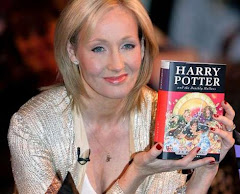

Several events in the past few weeks suddenly converged in my mind, causing me to realize that in the discourse about e-books, especially about what constitutes fair e-book pricing, the unbridgeable divide is between believe and know.
The first events were discussions about e-books and what constitutes fair pricing for an e-book. Three types of people participated in those discussions: those who admittedly had no direct knowledge of the costs involved in publishing an e-book, those who did have direct knowledge, and those who believed they knew. As is typical of such discussions, those who admitted not knowing were open to learning and the other two types were trying to teach. But between the teachers there was no room to compromise; those who believed they knew — the believers — simply would not consider or accept that believe and know are not synonymous, that there is a chasm between the two words. Then came the New York Times Magazine article, “How Christian Were the Founders?”, which discussed the efforts by pressure groups in
The article and the e-book fair-pricing discussions brought to mind this war between two words: belief and knowledge. The core problem in the discussions about both pricing and textbook content is the chasm between believe and know.
Believe, although having some slim foundation in evidence, signifies something improvable (or perhaps less provable), and thus less firmly based in evidence, than know, whose foundation is firmly based on the provable and demonstrable. For example, we may believe there is minimal cost to creating an e-book of a book, but we do not know what that cost is — we can’t prove it or demonstrate it. The same concept holds true for any belief, whether economic, cultural, religious, scientific, or something else.
Unlike know, believe covers a wide range of credulity. Know is more constrained; its verity must be demonstrable. Believe needs no more than the statement “I believe” something to be true, leaving it to the listener to supply the factual base — no matter how slim or wobbly — for where to place the belief on the continuum that ranges from pure speculation to pure fact.
Believe denotes the acceptance of the truth or actuality of something, that it is real, even if it may not be real. For example, the belief that because an e-book is a digital file of the book, there is no cost to creating the e-book. Know, on the other hand, has its basis in experience rather than acceptance, such as the experience of smelling a rose. Having never smelled a rose, I could say that I believe the rose’s fragrance is similar to that of a skunk; but having smelled both a rose and a skunk, I could say I know that the rose’s fragrance is dissimilar to the that of the skunk.
A belief statement might ultimately prove correct, but then believe would transform itself to know. The know statement, however, cannot be transformed from know to believe. Once I have smelled both the rose and the skunk, that I know doesn’t change. What I know might change, but not that I know.
Believe embraces the possibility of doubt: No matter how firmly one believes something, by describing that conviction as a belief, one ascribes some doubt, albeit infinitesimally small, as to the verity of that belief. In contrast, know doesn’t permit that possibility of doubt; it doesn’t permit any doubt: I believe the rose smells like a skunk, but I know it doesn’t.
It is the improper use of these two words that leads to the ongoing cultural wars that are reflected in the battles over what should and should not be taught in school and what is or is not a fair price for an e-book. Too many people equate believe with know. They are neither the same nor does each include the other. It is when believe transforms to know that fact is possible, but until that transformation occurs there is always some doubt.
Interestingly, know not only cannot transform to believe, but it cannot embrace believe as a component of itself. To do so would be to weaken know and impose that element of doubt that distinguishes it from believe. In this instance, know must stand aloof and by itself.
Would proper use and understanding of these words deflect any of the passionate discourse that surrounds “I believe” statements in the cultural and rebook pricing wars? I doubt it would matter. There are some things that we grasp and cannot let go, that are beyond believe and know in the sense of a willingness to transform from the former to the latter; after all, we invented these words as a method of describing those immutable beliefs and distinguishing between possibility and fact. But proper use and understanding might shine a different light on the divide and permit a coming closer together. Unlike conflicting knowledge, it is impossible to reconcile conflicting belief, which is why we can expect the question of what is fair e-book pricing to remain irresolvable.
by
tusin ahmed



No comments:
Post a Comment